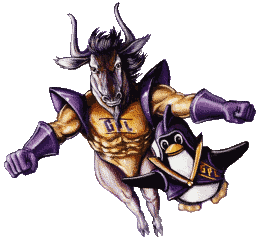

SEVERAL days ago, TuxRadar (a Linux Format magazine Web site) decided to run a strange poll with a strange introduction that can be seen as bait (the question seems like push polling [1, 2, 3]), or maybe an attempt to make the FSF look bad. That's fair enough as they can express an opinion or seek opinions, but as Jason from The Source put it:
This reminds me of a GNOME Foundation poll.
“The FSF is actually fighting against the problems and the associated corruption of the patent system, for example.”Anyway, that poll about the FSF was seemingly alienating GNU/FSF and it led to this troll headline from ECT, which says "Would Linux Be Better Off Without the FSF?"
This is ludicrous. The FSF is actually fighting against the problems and the associated corruption of the patent system, for example. On the contrary, Linux is backed by some of the very same companies that are part of the problem. They have many software patents that they are not prepared to give up or give away (bar OIN).
Ciaran from the FSF has produced a full transcript of Andrew Tridgell's recent talk (video here) and The Source remarked on it as follows:
Well worth reading, especially in light of increasing patent-based FUD attacks against Linux from Microsoft and the doom-and-gloom appeasement arguments and anti-community actions from Microsoft lackeys.
Free Software's Secret Patent Weapon
Yesterday I was warning about the threat that the super-troll Intellectual Ventures represents. To provide some balance, here's a surprisingly upbeat piece from Samba creator Andrew Tridgell on how to read software patents. It's incredibly well done, and I recommend it to everyone.
The fact that Google issued a statement in support of HTC before HTC even commented on the lawsuit also lends credence to the idea that Apple is actually gunning for Google here.
[PDF].
“People are gradually beginning to ask questions about the role of Intellectual Ventures and their immense holding of software patents.”
--Simon PhippsIt is worth noting that Red Bend chooses Windows for its Web site and its latest blog post is about Microsoft.
Going back to Intellectual Ventures, which was funded by Apple, Microsoft, and Bill Gates, this patent troll has over 1,000 'satellite' firms that it is said to be using to sabotage the business of companies which refuse to pay "protection money" (secretly, under NDAs). Simon Phipps has this to say about Kodak's latest revelations about Intellectual Ventures: "People are gradually beginning to ask questions about the role of Intellectual Ventures and their immense holding of software patents. Kodak is not a company I like (they trolled Sun for a fortune) but this accusation is very serious. Getting to the bottom of it would take some serious and well-funded investigation. Or, plan B, we can ask our legislators to remove the mechanisms used for trolling…"
Stephen O’Grady explains why he is against software patents and uses Intellectual Ventures to make his case:
Still others expect me to argue that the greater good – a dangerous phrase if ever there was one – demands that software be unpatentable. That Nathan Myhrvold’s Intellectual Ventures is the epitome of evil in the world, with a revenue model based strictly on extracting value from an antiquated patent system that has been mistakenly applied to an industry that requires no such protections. But while I personally believe that Myhrvold’s company is based entirely on extracting profit from a broken system rather stimulating invention as he claims – that Intellectual Ventures is just a version of those infomercials seeking ignorant “inventors” to exploit writ large – this isn’t why I’m against software patents.
Why Real Programmers Don't Take The USPTO Seriously: Doubly-Linked List Patented
[...]
It's pretty difficult to find software engineers who take the patent system seriously. There are a few, but it's still pretty difficult. For the most part, they recognize that code is just a tool: you can make it do all sorts of things, given enough time and resources, but that doesn't mean that doing any particular thing in code is an "invention" that no one else should be able to do. And then, sometimes, they discover that something pretty basic and old has suddenly been given a patent. Brad Feld discusses his discovery that doubly linked lists were apparently patented in 2006 (patent number 7,028,023)...
Comments
anthony
2010-03-25 13:16:20